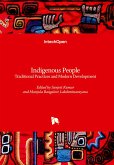In Soviet literature, this theoretical study of the evolution of Third World countries represents one of the first efforts to deviate from dogmatic Stalinist methodology in analyzing Eastern and Western societies. Nodari Simonia compares two Western models of capitalist development and describes a third model in the developing countries when analyzing the processes of socio-economic and state-political development of countries in Asia and North Africa. Simonia also provides case studies of the third model--of parliamentary authoritarianism in India and Malaysia; of controlled democracy in Indonesia, Pakistan, and Egypt; and absolutist regimes in Saudi Arabia and Iran under the Shah. This unusual synthesis by a senior Soviet scholar should provoke considerable interest among academics and professionals engaged in Soviet, political theory, and social and economic development studies. This initial study in Greenwood's new Series on Soviet and American Studies on the Third World first defines the major characteristics of countries in Western Europe where the birth of capitalism was a spontaneous process, and then points to other countries where capitalism arrived later and transitional and catch up processes were needed. The first part of the book gives a historical explanation for much of what is happening in the Soviet Union and Eastern Europe today. The second part discusses the emergence and development of capitalism in Eastern or Oriental countries and how capitalism was introduced and developed under external military-political pressures. Simonia also shows how colonialism was an objectively inevitable process. The author counters traditional Soviet views and also argues against some Western and Oriental scholars on questions concerning the synthesis of traditional and modern characteristics in Asia and North Africa. The third part of the book examines different versions of synthesis in these states. A short bibliography and index complete the book.
Bitte wählen Sie Ihr Anliegen aus.
Rechnungen
Retourenschein anfordern
Bestellstatus
Storno









